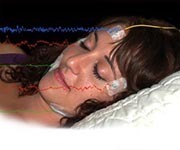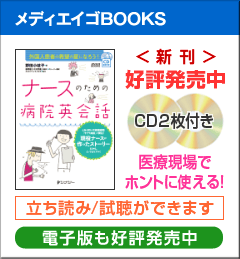

(c) the University of Massachusetts Amherst
神経科学者が行った実験で,衝撃的な体験に対する感情的反応は,体験後に眠らないでいるよりも睡眠をとった方が増強されることが示された。実験では,約100名の被験者にさまざまな画像をコンピュータ画面上で見せ,その後12時間後に再度前回と同じものを含む画像を見せた。すると,最初の画像を見た後に眠った群は,起き続けていた群よりもネガティブな感情が強く維持された。心的外傷後ストレス障害の患者は,原因となった経験を鮮明に思い出すフラッシュバックに悩まされる。この実験結果によると,事故現場など衝撃的な場面を体験または目撃した後に眠らないでいる方が,後日似た場面や映像を見たとき,あるいはフラッシュバックを経験したときに,心の動揺が小さくて済むことになる。(吉田素子)
UMass Amherst Researchers Find Sleep Preserves and Enhances Unpleasant Emotional Memories
A recent study by sleep researchers at the University of Massachusetts Amherst is the first to suggest that a person’s emotional response after witnessing an unsettling picture or traumatic event is greatly reduced if the person stays awake afterward, and that sleep strongly "protects" the negative emotional response. Further, if the unsettling picture is viewed again or a flashback memory occurs, it will be just as upsetting as the first time for those who have slept after viewing compared to those who have not.
UMass Amherst neuroscientists Rebecca Spencer, Bengi Baran and colleagues say this response could make sense from an evolutionary point of view, because it would provide survival value to our ancestors by preserving very negative emotions and memories of life-threatening situations and offer a strong incentive to avoid similar occasions in the future.
"Today, our findings have significance for people with post-traumatic stress disorder, for example, or those asked to give eye-witness testimony in court cases," Spencer says.
"We found that if you see something disturbing, let’s say an accident scene, and then you have a flashback or you’re asked to look at a picture of the same scene later, your emotional response is greatly reduced, that is you’ll find the scene far less upsetting, if you stayed awake after the original event than if you slept. It’s interesting to note that it is common to be sleep-deprived after witnessing a traumatic scene, almost as if your brain doesn’t want to sleep on it."
[単語和訳]
UMass:University of Massachusettsの略 Researchers:研究者 Enhances:~を強化する Unpleasant:嫌な Emotional Memories:情動記憶
unsettling:動揺させる traumatic:衝撃的な stays awake:起きている flashback:フラッシュバック upsetting:動揺させる
neuroscientists:神経科学者 colleagues:同僚・研究仲間 make sense:理にかなっている evolutionary:進化的な point of view:観点 survival:生き残ること life-threatening:生命を脅かす incentive:動機
significance:重要性 post-traumatic stress disorder:心的外傷後ストレス障害 eye-witness testimony:目撃証言 court cases:訴訟
disturbing:不穏な let’s say:例を挙げるならば sleep-deprived:睡眠不足の sleep on:~について一晩考える(ここでは,文字通り眠るという意味も含む)


